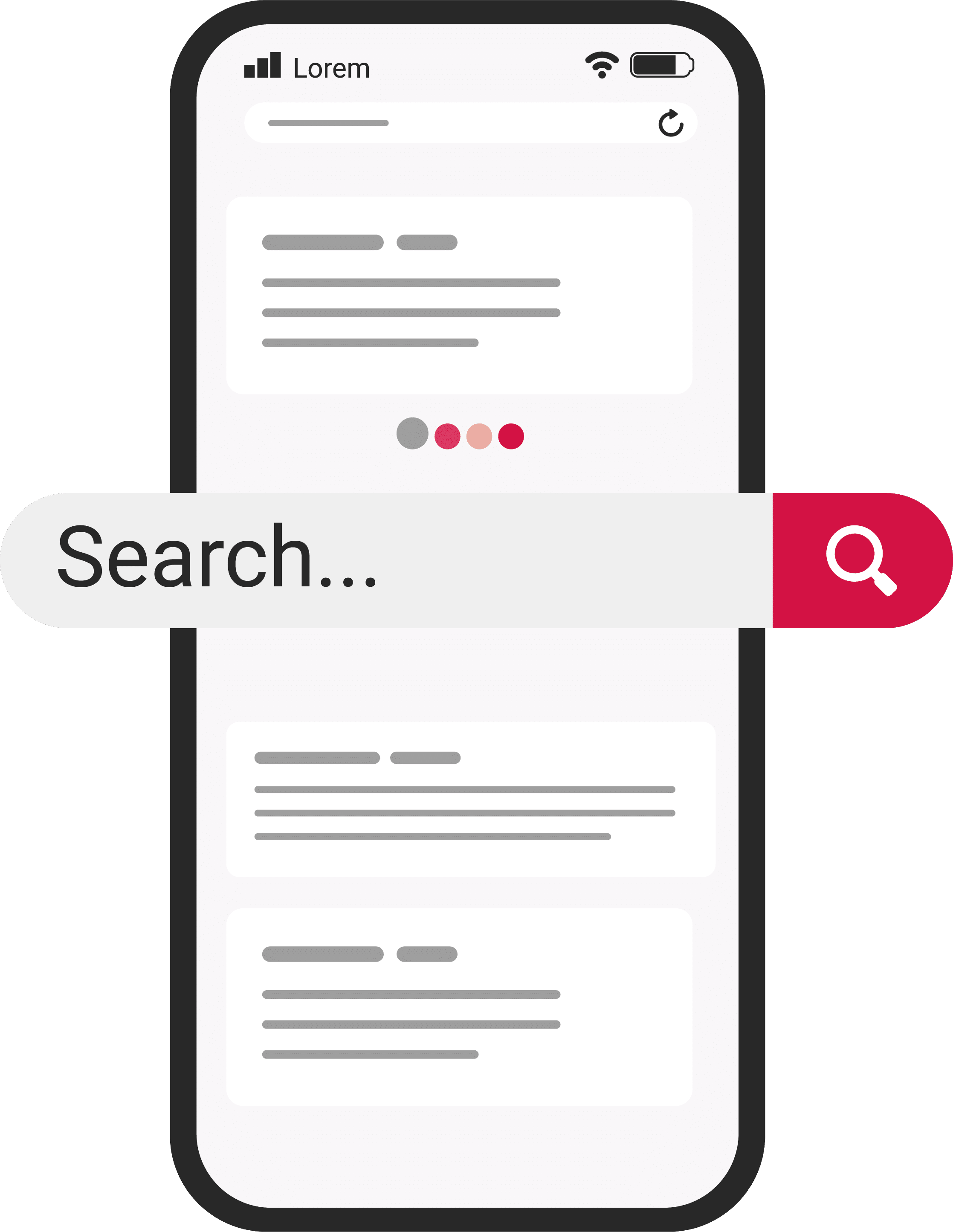Website Strategy: The 8 Keys to
Driving More Traffic

Key #1: Identify Your Goals
Before you start building your website, it’s essential to identify your goals. Are you looking to generate leads, sell products, or provide information? How many monthly leads/sales would you consider to be a success?
Knowing your objectives will inform your website’s design, structure, and content, ensuring everything aligns with your specific business goals. For instance, if you’re selling products, perhaps you feature the most popular product with reviews on your homepage to boost social proof or maybe you offer related products to encourage the user to put additional items in their cart.
Key #2: Understand Your Target Audience
Defining your target audience is the first and most important step in implementing a website strategy. Identifying the demographics of your ideal customer, their pain points, their needs, and most importantly, how you can meet those needs, will help you better understand and speak to them.
Once you know your target audience and understand what they need to get from visiting your website, you can begin to improve user experience and create customized messaging that speaks to their needs.

Key #3: Create Quality, SEO-Rich Content
Your website needs fresh and engaging content to attract and retain visitors. After all, content is how you communicate your brand message, engage your audience, and drive conversions.
High-quality, relevant content not only engages your audience but also improves your search engine ranking. Incorporate SEO-rich content into your website to attract organic traffic, increase visibility, and establish authority in your industry.
A strategic approach to content creation involves regularly publishing valuable, relevant, and engaging material. Be sure to plan out the types of content you’ll produce, how often you’ll publish updates, and who is responsible for executing the plan.
Key #4: Keep Up with SEO
Navigating the dynamic landscape of Search Engine Optimization is crucial for your website’s success. SEO isn’t simply a one-time setup, but a continuous process that requires regular updates to stay current with the ever-changing algorithms, new ranking factors, and emerging SEO trends.
From page speed to mobile-friendliness, the list of factors that search engines use to rank websites keeps expanding. Keeping abreast of these new ranking factors and integrating them into your SEO strategy can give you an edge over your competitors.
It’s also important to remember that SEO is also about staying relevant. This means regularly updating your content to reflect current topics and trends in your industry, which can help maintain your website’s visibility and relevance.

Key #5: Foster Engagement on Your Website
A website isn’t just a brochure of your products or services, nor is it a one-way street of communication. It’s a place where potential customers should be able to easily interact with your brand and get the information they need. If they have to search hard for what they need, you’ll likely lose them.
Your website strategy should identify ways to engage with your visitors through features like chatbots, gamified content, contact forms, and social media integrations. This goes back to knowing your audience – in what ways does your target audience prefer to communicate? For example, don’t force them to call you if they’re more comfortable using a chat feature.
Key #6: Drive Traffic with Target Marketing
Actively driving traffic to your website is an integral part of your overall website strategy, and it’s where targeted marketing comes into play. This approach involves reaching the right people at the right time with the right message, tailored to different audiences based on their unique preferences and behaviors.
Once you’ve established a solid foundation for your website— following the keys we’ve discussed so far — you can begin implementing various marketing tactics to drive specific types of traffic. These tactics will vary depending on your business and can range from email and social media marketing to paid digital advertising and even traditional methods like print and promotional materials.
When deploying targeted campaigns, like paid advertising, a dedicated landing page will help with effective lead generation. These pages keep users focused and guide them toward the desired action, whether it’s signing up for a newsletter, making a purchase, or downloading a resource.
It’s important to note that a marketing plan is not synonymous with a website strategy. Your website is part of your marketing plan. Your marketing plan encompasses all aspects of promoting your business, whereas your website strategy zeros in on how you’ll get people to your website and take a specific action. All other marketing initiatives should complement your website strategy.
Key #7: Track Results & Make Adjustments
A website strategy isn’t a one-time event, but an ongoing process. Be sure to regularly measure your results and adjust your website strategy accordingly. This not only helps measure the effectiveness of your existing strategy, but also provides insights that can help you make informed decisions for improvement.
With proper tracking and reporting, you can continuously improve your website strategy and get better results. Using a digital dashboard, like the one inConcert clients use, is a great way to aggregate results and data from multiple sources into one, easy-to-understand dashboard.
Key #8: Collaborate with an Expert
Navigating the complex world of digital marketing can be overwhelming. Working with an expert who understands the nuances of website and marketing strategy can streamline your marketing efforts and maximize ROI.
A professional marketer can evaluate your website and provide you with an actionable plan. Plus, they bring their team and expertise to the table with SEO, content creation, targeted marketing, and analytics, helping you harness the full potential of your website.

Crafting a Strategic Path for Your Website Success
A strategic approach to your website can be a game-changer in your digital marketing efforts. It brings together various elements into one cohesive plan. With a well-defined website strategy, you’re not just building a website; you’re creating a powerful tool for business growth.
For help with your website strategy, don’t hesitate to reach out to the experts at inConcert Web Solutions. We can help you create a custom website strategy and digital marketing plan that makes sense for your business.
The Secret to Website Success? Content Refreshing
The Secret to Website Success? Content RefreshingKeeping your website content up-to-date is essential for user engagement and search success. But that doesn’t mean you have to...
The Video Effect
8 Ways to Boost Engagement with VideoVideo content has emerged as one of the most powerful tools that you can use to effectively engage with your audience, boost your brand...
Google Ads and AI – What You Should Know
Google Ads and AI - What You Should KnowAI is nothing new for digital marketers. Google integrated AI into many of its ad features years ago. Responsive search ads use AI to...
Get Expert Advice. Join Our Newsletter.
Receive curated tips and practical guidance to improve your digital presence and build your brand.
